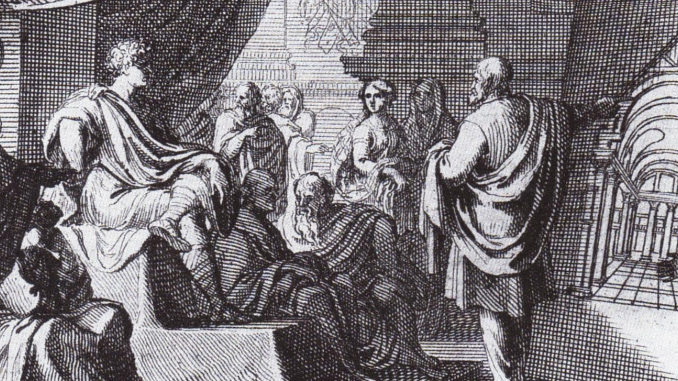
Set the dials on your wayback machine to the distant past, more than two millenia ago. We’re going to have a quick visit with a famous ancient author, architect, and engineer.
Marcus Vitruvius Pollio, best known simply as Vitruvius, lived in the first century B.C. and served in the Roman army as an engineer and architect under Julius Caesar. A leader in architecture, Vitruvius famously advised that all structures must possess three characteristics; firmitas, utilitas, and venustas, which translates as stability, utility, and elegance. Today, we might interpret this to mean that every building must be strong, useful, and have great curb appeal. Architects still study and practice Vitruvius’ ideas and philosophies.
Vitruvius’ greatest work, for which he is best known, is a ten volume treatise called De Architectura (On Architecture). This is the only text on Roman and Greek architecture (and much more) from ancient times to survive. After the fall of the Roman Empire, it might have been lost as so many other ancient works were. Fortunately, through the centuries scribes made copies which were rediscovered during the Renaissance.
De Architectura not only discussed architecture, Vitruvius also documented Roman knowledge of machines and materials of the day, which was invaluable to the thinkers and builders in the fifteenth and sixteenth centuries. Gutenberg’s printing press made Vitruvius’ De Architectura widely available, and it’s influence on the Renaissance was immeasurable.
Vitruvius was a keen observer of nature, beauty, and proportion. In Book III, chapter 1, of De Architectura, his descriptions of human dimensions inspired Leonardo da Vinci in the late fifteenth century to create the famous drawing of a man inside a circle and a square, which is now known as Vitruvian Man.
From the Renaissance through to modern times, volumes have been written about Vitruvius and De Architectura. Regretfully, this Night Owl entry has only touched the surface of the importance of the man and his written work.
Question of the night: what is your favorite academic subject?
HEY! If you enjoyed this piece and feel like you have something you’d like to contribute or share – an oddity, a pleasant memory, a cool web link you’ve found, or something else entirely – please feel invited to contribute. We’re always looking for as many different voices as possible for the Owl, and yours could easily be one of them. You can use the Guest Editorial form (just put Night Owl in the title) or contact one of the regular writers or moderators directly. I’d say more, but I’m out of here before I find out if that wall was load-bearing.
